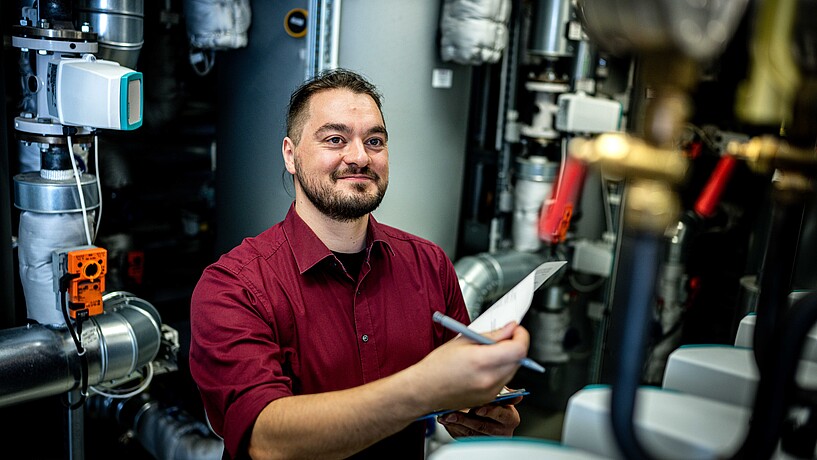Existing district heating systems play a technologically sensible and helpful role in urban heat supply. However, they are a double-edged sword: they generally still use fossil fuels and do little to contribute to the overarching goal of a green heating sector.
Still, the versatile integration potential of renewable heating plants provides hope. In order for the transition to a carbon-free heat supply to succeed, several hurdles need to be overcome: To efficiently integrate the renewable heating plants, special modifications to the overall system are necessary – for example, the reduction of the supply temperatures. But this type of reduction has only limited added value in fossil fuel systems, a factor which thus represents a barrier to transformation.
In his dissertation, Peter Lorenzen examined how district heating systems could be adapted to make them more climate friendly and economically efficient. In doing so, he broke down the different elements of district heating into key areas of concern and combined existing and new concepts for overcoming the barriers. The linking of technical and economic aspects provides important starting points for a green transition in the heating sector. In addition to discouraging monopolistic behaviour in the heating market, it encourages increased investment and integrates relevant technologies for a flexible heating system in order to balance out fluctuations in production.
The framework developed by Peter Lorenzen provides policymakers, municipalities and energy companies with a comprehensive approach for systemically developing the heating sector in line with important climate protection goals.
Prof. Dr. Franz Schubert, Lorenzen's academic supervisor at HAW Hamburg, is optimistic about the dissertation's methods and findings: 'This can certainly have benefits in future for the effective use of thermal energy and the integration of excess electrical energy in heat production via sector coupling.'
Now that he has his doctor title, Peter Lorenzen can concentrate completely on his work in the Integrated Heat Market (IWm) project. In this subproject at the Integrated Heat Transition Wilhelmsburg (IW³) lab, the concepts from the dissertation are being implemented and tested in the Wilhelmsburg heating network. If the test is successful, the concepts can be applied in other heating networks. More information is available (in German) on the project page.
Peter Lorenzen's doctoral dissertation is available from HAW Hamburg's REPOSIT server.

